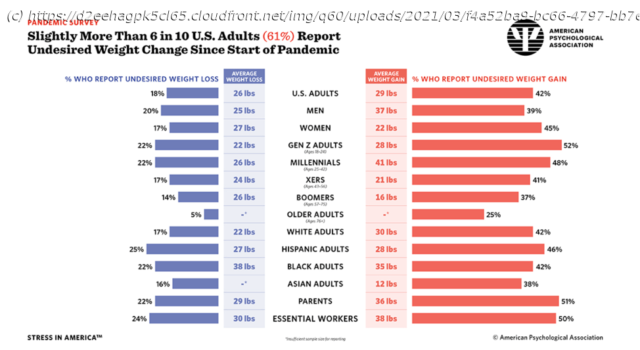Plus: Homeschooling rates have doubled, the USPS is about to get even slower at delivering mail, and more…
Pandemic weight fluctuations go both ways. A confusingly worded write-up of a survey from the American Psychological Association (APA) and some viral tweets about it have spawned some panic about pandemic weight gain in the U.S. Many have been interpreting the survey to say that Americans have put on an average of 29 pounds during the pandemic, with American millennials putting on an average of 41 pounds. Yikes! But let’s look a little closer. Turns out, these are the averages among people who say they put on unwanted weight —so about 42 percent of the adults surveyed. That’s not insignificant, but it’s also nowhere near the dire situation the first statistics alone suggest. The average is also significantly higher than the median weight gain among the group that put on unwanted pounds, suggesting some extreme weight gain has seriously inflated the picture here. (The APA says about 10 percent of survey participants gained 50 or more pounds.) The median weight gain among adults who put on unwanted weight was just 15 pounds—so, a large portion of that same group gained less than 15 pounds. The APA reports that 61 percent of U.S. adults „report undesired weight change since the start of the pandemic,“ a figure that includes the 18 percent of survey participants who experienced undesired weight loss. The average weight loss among this group was 26 pounds, and the median weight loss was 12 pounds. Men were more likely than women to report undesired weight loss (20 percent vs.17 percent), while women were more likely to report undesired weight gain (45 percent vs.39 percent). But men who gained undesired weight put on more of it: 37 pounds on average, compared to 22 pounds for women.






